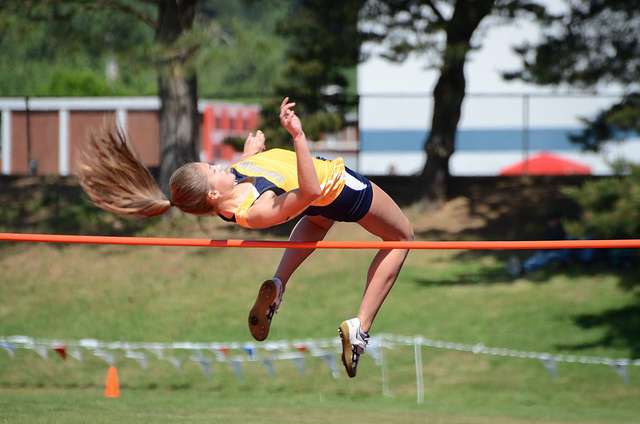Preparing your Student Athlete for Fall Sports Camp

Is your teen preparing for the fall athletic season? If not, and your teen is planning to play a sport, he or she should be. For student athletes, preparation can be intense. For best results and to prevent injuries, it shouldn’t be saved for the last minute.
Sports injuries can be classified in two ways: acute traumatic injuries (fractures, sprains, strains, concussions, cuts) that are caused by a blow or force, and overuse injuries (stress fractures, tendonitis) that occur over time as a result of repetitive training. These injuries don’t usually appear serious at first, but they can worsen over time. The key to preventing overuse injuries is preparing in advance.
Use these tips to ready your teen for sports:
- Create an exercise plan. Your teen should start to get in shape well before the season begins. Depending on what his or her usual activities consist of, this could mean establishing a regular workout routine that exercises various muscle groups and prepares him or her for a specific sport. It also means that your teen should work on flexibility to prevent injury, as well as allow for plenty of rest and recovery time so that his or her body and mind can recuperate.
- Visit the doctor.Chances are that the school or team will require a sports physical before the season begins. Even if your teen has had a regular well visit within the past year, the doctor will look for different things during a sports physical, such as whether your teen is at high risk for exercise-induced asthma or other conditions that would make it unsafe to participate in sports. Your teen should have a sports physical performed about six to eight weeks prior to the start of the season so that if a condition is identified, it can be treated immediately.
- Make healthy food choices. Nutrient-rich foods fuel an active lifestyle and repair the body’s cells, aiding overall performance before and during the sports season. Check out these healthy foods that you and your teen can incorporate into your daily diets. Make sure that your teen understands the basics of a balanced diet, especially if he or she is leaving home for the first time for training or even college. Quality calories from fruit, vegetables, whole-grain breads and cereals, low-fat dairy, lean protein, and heart-healthy fats provide vitamins and minerals that teen athletes (and all teens) need to stay healthy.
- Discuss the risks. Just as you would have a sit-down talk with your teen about his or her first unsupervised party, first date, or another solo experience, you should talk about the risks associated with sports. Review things like heat exhaustion and heat stroke and the importance of staying hydrated and wearing sunscreen. Although these may seem basic, teens tend to get caught up in the moment with their friends and teammates and might forget to drink enough water and protect their skin, which could lead to serious consequences.
- Be sure that your teen has the appropriate equipment for his or her sport and that it fits properly. Whether you’re purchasing equipment or the school or team is supplying it, you want to know that it’s being used correctly to minimize the risk of injury. This includes proper eye protection, especially if your teen wears glasses.
- Finally, understand the emotional risks for your teen. Your child’s risk for physical injury is higher if he or she is feeling stressed. The pressure to win, earn scholarships, or other external demands can take a toll on your teen and may affect other aspects of his or her life. Make sure that your teen knows that he or she can talk openly with you. If you’re not sure how to help your teen handle stress or emotional issues around sports, school, friends, or other life events, CDPHP mental health resources are always available.
High school and college sports can be lots of fun, but like anything else, parents should stay on top of what’s happening in their children’s lives. Teach your teen to be smart, play hard, and learn along the way. Be your teen’s biggest cheerleader!
References: Eat Right, WebMD, University of Michigan
 The Daily Dose
The Daily Dose
Comments are closed.